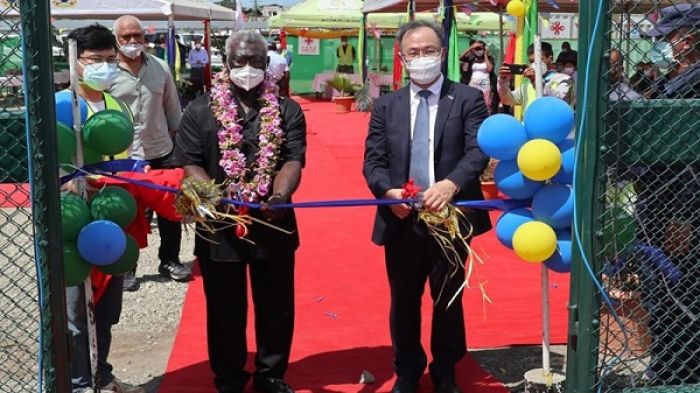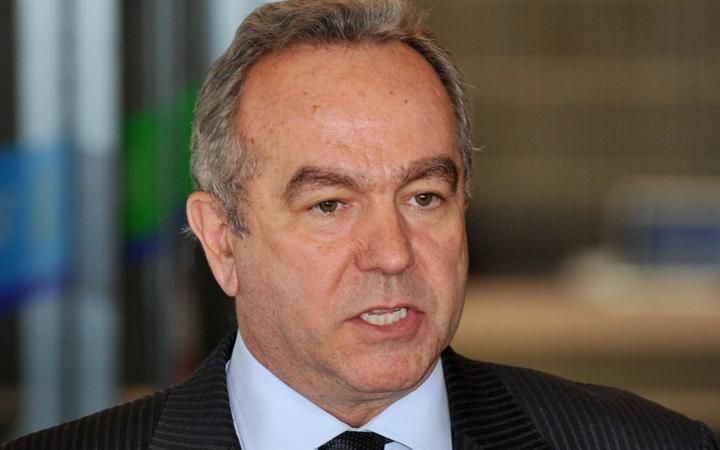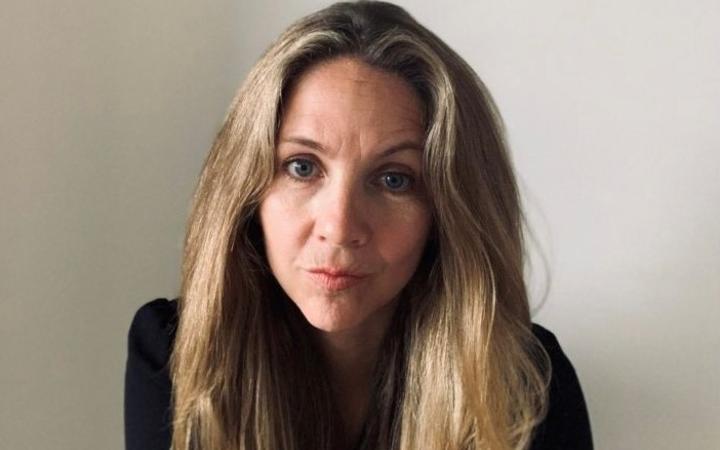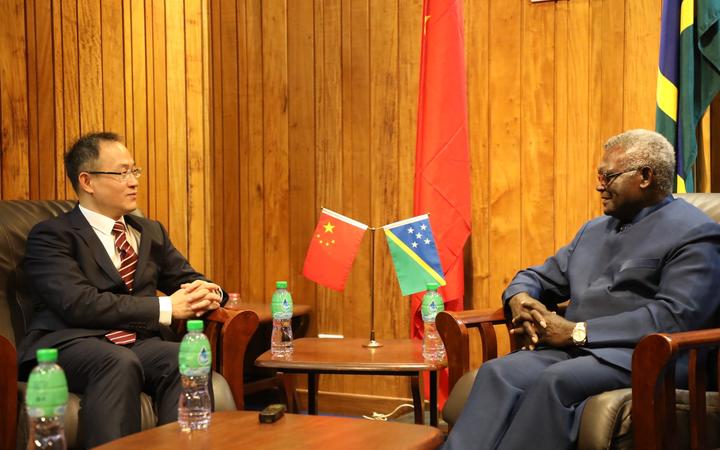Concerns voiced on security pact between China and Solomons Featured

27 April, 2022. The United States has drawn a line in the sand for Solomon Islands regarding its recently signed security cooperation agreement with China.

Kurt Campbell is the Indo-Pacific coordinator of the National Security Council who led the US delegation to Honiara. Photo: AFP
In a meeting on Friday, US National Security Council Indo-Pacific coordinator Kurt Campbell conveyed Washington DC's concerns with the treaty.
Campbell told Solomon Islands Prime Minister Manasseh Sogavare the United States respected the right of nations to make sovereign decisions but warned if steps are taken by China to establish a de facto permanent military presence in the country the United States would have significant concerns and respond accordingly.
During their meeting, Campbell also outlined specific steps the United States would take to advance the welfare of the people of Solomon Islands.
This included expediting the opening of an embassy in Honiara, advancing cooperation on unexploded WWII ordnance and launching a programme on maritime domain awareness.
Massey University Senior Lecturer in Security Studies Dr Anna Powles said the position was much more direct than that taken by either Canberra or Wellington but still raised more questions than answers.
"It does leave us wondering what that 'respond accordingly' actually does mean and importantly also what actually can the United States do if China does seek to, with the permission [of] Solomon Islands' government of the time, to establish some type of military presence in the country," Powles said.
"We haven't seen the official signed version, Solomon Islands politician Danny Philip noted on a webinar last week the signed version is close to the draft that was leaked in March.
"Now there are a number of provisions in that draft that are concerning and what I find particularly concerning is the vaguities and the ambiguities in that draft."

Dr Anna Powles is a senior lecturer at the Centre for Defence and Security Studies at Massey University. Photo: Supplied
The leaked draft security pact lacked the level of detail which was in other security agreements signed by Solomon Islands, said Powles.
"If you compare it, for example with the Australia-Solomon Islands Bilateral Security Treaty - which enabled the Solomon Islands intervention force, of which New Zealand was part of, to respond to the riots in November last year - that treaty is very clear, very unambiguous," Powles said.
"But, the draft security arrangement between China and Solomons lacks that level of clarity and there are some critical provisions in there which I would be concerned about which relate to there needing to be an agreement between both parties - China and Solomon Islands, and about the release of any information about the security cooperation agreement.
"That it reflects a degree of seeking to control the public narrative, controlling how much information goes into the public domain, and that would really worrying for me [sic].
"Then there are other broader more ambitious elements within the agreement which relate to the provision of Chinese security personnel to protect Chinese nationals and projects in Solomon Islands, as well as the reference to ships stopping over or transiting through the country," she said.
Last week senior Solomon Islands journalist Dorothy Wickham spoke on a panel about the contentious treaty and said most of the news coverage on the security arrangement had been largely focused on the positions of Australia and the US.

Solomon Islands prime minister Manasseh Sogavare (right) with Li Ming, China's first ambassador to the Solomon Islands. Photo: George Herming - Government Communications Unit
"The government's handling of the way it went about handling this treaty shows disrespect ... to Solomon Islanders that there was no discussion, no consultation," Wickham said.
"Even a press release on the eve of the signing would have been a standard procedure and until today we have not had a press briefing or a press statement, or a press briefing from the Prime Minister's office".
She said the Solomons government had not meaningfully engaged with journalists to ensure that they could inform Solomon Islanders about what the security deal meant for them.
Wickham said local media had been struggling to refocus the narrative so that it was about Solomon Islands.
Powles took up the narrative on the Fourth Estate's right to report accurately on the security cooperation agreement between Solomon Islands and China.
"The clause around the controlling of information around the security agreement, and the ability of Solomon Islands media to be able to freely and transparently report on the agreement and on the security arrangement between China and Solomons, obviously that is a concern too, because that speaks to the freedom of the Fourth Estate and speaks to the public right to be aware of critical issues in the country that affect them," she said.



